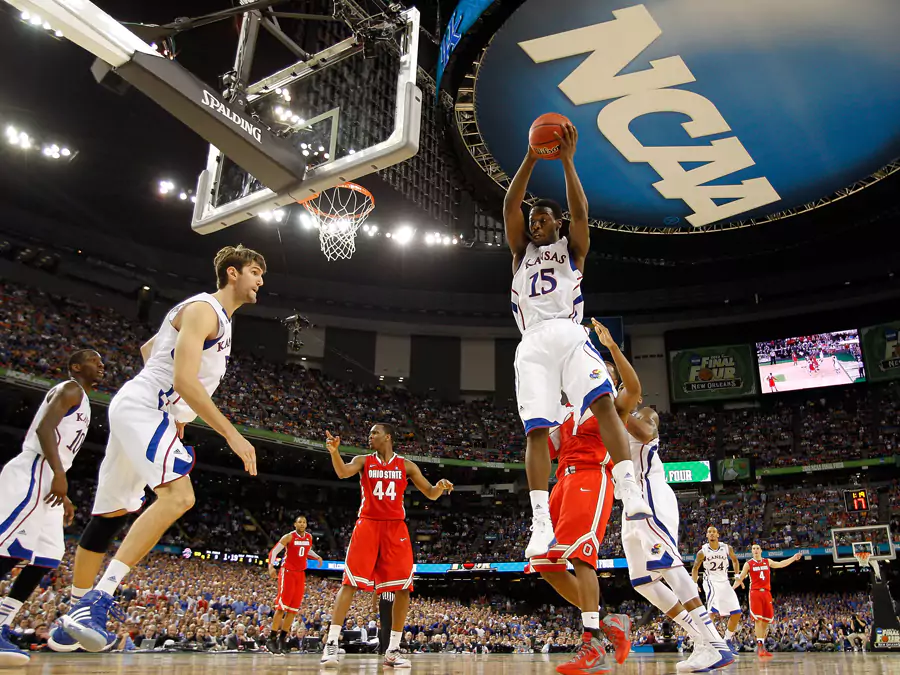 Team sports like soccer or basketball, as well as individual sports, are extremely popular worldwide. Famous sportsmen and sportswomen have statuses similar to Hollywood celebrities, and their wages are high. However, no matter how well they play, all of them have once been amateurs; in this perspective, high school or college athletes are not much different from professionals. At the same time, the NCAA (National Collegiate Athletic Association) prohibits college athletes to be monetarily compensated for their efforts, which is definitely unfair. College athletes should be paid their due for a number of reasons.
Team sports like soccer or basketball, as well as individual sports, are extremely popular worldwide. Famous sportsmen and sportswomen have statuses similar to Hollywood celebrities, and their wages are high. However, no matter how well they play, all of them have once been amateurs; in this perspective, high school or college athletes are not much different from professionals. At the same time, the NCAA (National Collegiate Athletic Association) prohibits college athletes to be monetarily compensated for their efforts, which is definitely unfair. College athletes should be paid their due for a number of reasons.

✅ AI Essay Writer ✅ AI Detector ✅ Plagchecker ✅ Paraphraser
✅ Summarizer ✅ Citation Generator
The NCAA should pay student athletes because it can do it. According to polls among economists, there are no financial factors that prevent the NCAA from paying their athletes. In particular, Rodney Fort, a sports economist and professor of sports management at the University of Michigan, believes that the NCAA already possesses enough money to do so. Moreover, arguments that additional labor costs would hurt sports programs at schools are groundless, says David Berri, a professor of economics at Southern Utah University. “They’re nonprofits, and their incentive is to spend every cent that comes in,” he says (Huffingtonpost.com).
Speaking of skills, by the way, the fact that an athlete is a college student does not automatically mean he or she is an amateur (unlike what the NCAA officially claims). For example, a typical first division college football player trains approximately 43.3 hours per week; for contrast, a typical American work week is only 40 hours. Besides, college athletes also need to dedicate time to studying; along with this, NCAA tournament rules require college students to skip classes in favor of nationally-televised games that bring in revenue (Forbes). No need to say that the revenue goes to the NCAA. Considering this, is it not obvious that college athletes should receive at least some compensation for their efforts?
Paying college athletes could also solve a significant problem of athletes quitting schools and colleges. It is not a secret that many of them make a decision to leave due to financial reasons; usually, they are allured by the perspective to start earning money with what they can do best (sports) outside of college. Indeed, what is the point for a prospective professional athlete to rush between sports and study for free if they can earn real money doing what they love, and without any obstacles? Paying college athletes could help keep many of them within their schools/colleges, and help them earn a degree (TheSportster).
The reasons why college athletes should be paid are significant. First of all, the NCAA has all the capabilities to pay their athletes—it accumulates tons of revenue annually, so supporting college athletes would not be a problem. Besides, despite that the NCAA officially recognizes college athletes as amateurs, in fact these “amateurs” train 43 hours a week on average, in addition to studying. And lastly, many college athletes prefer to start earning real money with their skills rather than rush between sports and study for free, and thus quit schools; paying them might help solve this problem.
References
Strachan, Maxwell. “NCAA Schools Can Absolutely Afford to Pay College Athletes, Economists Say.” The Huffington Post. TheHuffingtonPost.com, n.d. Web. 12 May 2015.
“21 Reasons Why Student-Athletes Are Employees and Should Be Allowed to Unionize.” Forbes. Forbes Magazine, n.d. Web. 12 May 2015.
“Top 10 Reasons College Football Players Should Get Paid.” TheSportster. N.p., n.d. Web. 12 May 2015.
Follow us on Reddit for more insights and updates.





Comments (0)
Welcome to A*Help comments!
We’re all about debate and discussion at A*Help.
We value the diverse opinions of users, so you may find points of view that you don’t agree with. And that’s cool. However, there are certain things we’re not OK with: attempts to manipulate our data in any way, for example, or the posting of discriminative, offensive, hateful, or disparaging material.